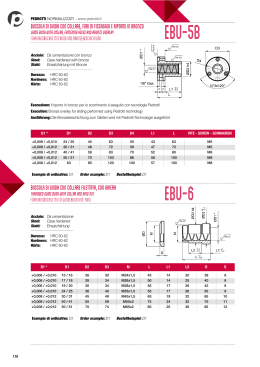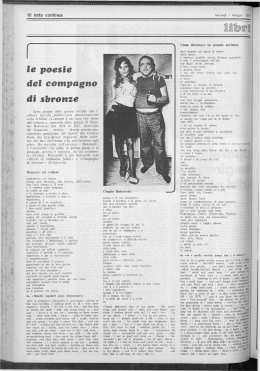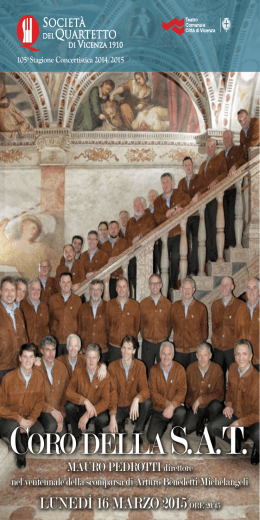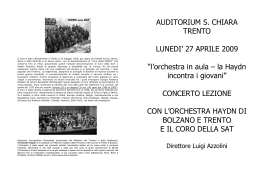BRYOLOGICAL NOTES 245 Cortini Pedrotti C, Aleffi M. 1992. Lista Rossa delle Briofite d'Italia. In: Conti F, Manzi A, Pedrotti F, eds. Libro Rosso delle Piante d'Italia. Roma: WWF Italia, 557-637. Cortini Pedrotti C. 1992. Check-list of mosses of Italy. Flora Mediterranea 2: 119-221. De Notaris G. 1836. Mantissa muscorum ad fioram pedemontanam. Memorie della Reale Accademia delle Scienze di Torino 39: 252. Geissler P, Selldorf P. 1985. 1 muschi e le epatiche del Parco Alpino Piora: ecologia e importanza per la protezione della natura. Bollettino della Societa Ticinese di Scienze Naturali 73: 109-136. Nyholm E. 1989. Illustrated flora 01 Nordic mosses. Fascicle 2. Pottiaceae Splachnaceae Schistostegaceae. Copenhagen and Lund: Nordic Bryological Society. Paul H. 1924. Hypnum turgescens. T. Jensen. Kryptogamische Forschungen 6: 408-419. Schumacker R, Soldán Z. 1997. Preliminary results of the new survey of the bryophyte flora of the Gran Paradiso National Park and its immediate surroundings (results of field research 1994 and 1995). Ibex J.M.E.G.: 33-48. Smith AJE. 1978. The moss flora 01 Britain and Ireland. Cambridge: Cambridge University Press. Venturi G. 1885. La sezione Harpidium nella briologia italiana. Nuovo Giornale Botanico Italiano 161-184. 17: Venturi G. 1893. Comunicazione. In: Arcangeli G, ed. Relazione sulle comunicazioni inviate alla presidenza della Commissione per I'esplorazione della flora italiana. Bullettino della Societa Botanica Italiana 8: 439-454. Venturi G. 1899. Le Muscinee del Trentino. Trento: G. Zippel. G. BUFFA, L. MISEREREand G. DAL YEsca, Dipartimento di Biologia vegetal e dell'Universita, Viale Mattioli 25, 10125 Torino, Italy. Aloina brevirostris (Hook. & Grev.) Kindb., new for Greece, the lberian Peninsula and the Canary lslands & Grev.) Kindb. is a widely distributed species in Europe, ranging from north and central Europe to northern Italy (Delgadillo, 1975; Dull, 1984). Hitherto, only four Aloina species were known in the Iberian Peninsula, A. aloides (Schultz) Kindb., A. ambigua (B. & S.) Limpr., A. bifrons (De Not.) Delg. and A. rigida (Hedw.) Limpr. (Casas, 1991), and only four in the Canary Islands, A. aloides, A. ambigua, A. rigida (DUll, 1984) and A. humilis M.T. Gallego, Cano & Ros (Gallego et al., in press). According to Dull (1995a, b, c, d, e), Damm & Dull (1995), Preuss & Dull (1995), and Sauer (1995), three taxa occur in Greece: A. aloides, A. ambigua and A. rigida. During a revision of Aloina specimens from the material preserved in European herbaria of this genus, we were able to identify material belonging to A. brevirostris from Spain and Greece. The new collections exhibit all the typical features of A. brevirostris such as basal marginal cells forming a membranous border in the leaf, a poorly developed costa which is reduced to 1-2 stereid layers, suborbicular leaves with cucullate apex, synoicous condition in the Spanish material and the presence of a peristome basal membrane. However a longer operculum was observed in the Spanish and Greek material than in the Central European collections. The new records are as follows: Greece: Cyclades Archipielago, Santorini islands, Thira, 25° 27' E 36° 22' N, altitude 500 m, Mt. Profitis Ilias, H. Sipman & T Raus, 16 May Aloina brevirostris (Hook. 246 BRYOLOGICAL NOTES 1990 (B 271370); Iberían Península: Navarra, XM2173, altitude 270 m, P. Heras, 17 March Tenerife, Puerto de San Marcos, altitude 30 m, Lanzarote, Hascha Grande, altitude 350 m, L. Arguedas, cerca de Los Mo1ares, 1985 (VIT 331/85); Canary Islands: D. G. Long., 1 April1997 (E 5730). Malme, 1 January 1978 (O 688). ACKNOWLEDGEMENTS We are gratefu1 to the curators of B, E and O, and P. Heras (VIT) for the 10an of specimens. This research was carried out with financia1 aid from DGES of Spain (Project PB96-1111-C02-0 1). TAXONOMIC ADDITIONS AND CHANGES: Nil. REFERENCES Casas C. 1991. New checklist of Spanish mosses. Orsis 6: 3-26. Delgadillo C. 1975. Taxonomic revision of Aloina, Aloinella and Crossidium (Musci). Bryologist 78: 245-303. Damm E, Diill R. 1995. Moose von Thassos. Bryologische Beitriige 10: 143-158. Diill R. 1984. Distribution ofthe European and Macaronesian mosses (Bryophytina). Part I. Bryologische Beitriige 5: 110-232. Diill R. 1995a. Ubersicht der Moose Griechenlands. Bryologische Beitriige 10: 1-125. Diill R. 1995b. Moose der Chalkidike (mit Sithonia und Athos) und den Rhodopen. Bryologische Beitriige 10: 126-142. Diill R. 1995c. Moose von Korfu. Bryologische Beitriige 10: 159-177. Diill R. 1995d. Moose von Thessalien. Bryologische Beitriige 10: 192-208. Diill R. 1995e. Moose von Rhodos. Bryologische Beitriige 10: 219-225. Gallego MT, Cano MJ, Ros RM, Guerra J, Dirkse GM. 1998. Aloina humilis sp. nov. (Bryopsida, Pottiaceae) from the Canary Islands. Nova Hedwigia, in press. Preuss F, Diill R. 1995. Moose von Cephalinia. Bryologische Beitriige 10: 178-191. Sauer E. 1995. Beitrag zur Moosflora Griechenlands. Bryologische Beitriige 10: 209-218. M. T. GALLEGOand M. J. CANO,Departamento de Biología Vegetal, Facultad de Biologia, Universidad de Murcia, 30100-Murcia, Spain. On the presence of Orthotrichum pulchellum Sm. in Spain Orthotrichum pulchellum Sm. has a disjunct distribution comprising oceanic zones of westem North America and westem Europe. Its known are a in Europe extends from the British Is1es and N.W. France to Poland and westem Scandinavia (Diill, 1985, 1992; Hill, Preston & Smith, 1994; Vitt, 1973). It has also been reported from Sici1y and continental Ita1y (Cortini Pedrotti, 1992). Since Casares Gil (1915) reported o. pulchellum from a unique 10cality of the Spanish Central range, this taxon has been consistent1y included in the Spanish moss flora (Casas, 1981, 1991). However, it was not found in later studies on epiphytic bryophytes of this range (Lara, 1995), nor in the coastal mountains of the Iberian Peninsula where ecological
Scaricare





